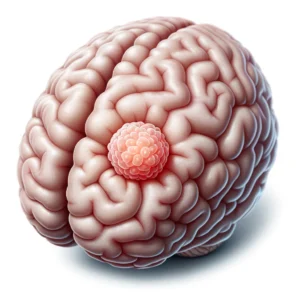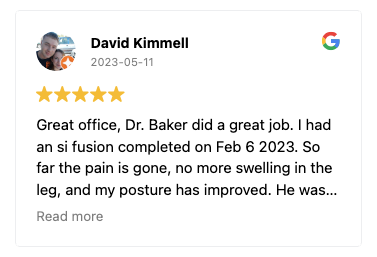What Brian Cyst Surgery Risk Should I Be Aware Of?

Brain surgery, a complex medical procedure, is often performed to address various conditions affecting the brain, including brain cysts.
This type of surgery is a critical intervention for many serious brain disorders, ranging from the removal of brain tumors to the treatment of traumatic brain injuries.
Its primary aim is to rectify structural issues within the brain that could be life-threatening or significantly impair a person's quality of life.
Cysts, in a general sense, are sac-like pockets of membranous tissue that contain fluid, air, or other substances.
They can form anywhere in the body and are typically benign (non-cancerous). The nature of cysts varies based on their location in the body, the type of fluid they contain, and the underlying cause of their formation.
Brain cysts, specifically, are cysts that form within the brain or at its surface. They differ from cysts in other body parts due to their location in the sensitive and functionally critical environment of the brain.
This positioning can make them more problematic, as they have the potential to disrupt crucial brain functions and cause a range of neurological symptoms.
The treatment of brain cysts is essential due to the delicate nature of their location. Left untreated, these cysts can lead to increased pressure within the skull, causing pain, neurological symptoms, and in severe cases, life-threatening complications.
Brain cysts can occur in individuals of all ages and backgrounds, although the reasons for their development can vary widely. In some cases, they may be congenital (present at birth), while in others, they might develop due to infections, tumors, or other medical conditions.
In this blog post, we will delve deeper into the specifics of brain cyst surgery, including the risks associated with the procedure, the role of the surgical team, and the recovery process. If you are concerned about brain cysts or brain tumor and are seeking a neurosurgeon in Dallas then speak to Dr Baker today!
We will also explore the various types of brain cysts, such as colloid cysts and arachnoid cysts, and the reasons why surgical intervention is often necessary.
Understanding these aspects will provide a comprehensive overview of what patients and their families may expect before, during, and after brain cyst surgery.
Brain Cysts and Brain Tumors
Brain cysts and brain tumors, though often mentioned in the same context of brain surgery, have distinct differences. Brain tumors are abnormal growths of cells within the brain.
These can be benign (non-cancerous) or malignant (cancerous) and can originate in the brain itself (primary tumors) or spread from other body parts (metastatic tumors). The severity and treatment of brain tumors depend on various factors, including their type, size, location, and the patient's general health.
On the other hand, brain cysts, such as colloid cysts, are typically benign fluid-filled sacs. Unlike tumors, they don't involve abnormal cell growth but can still cause problems due to their location and the pressure they exert on surrounding brain structures.
This pressure can affect certain functions of the brain and lead to symptoms like headaches, seizures, and changes in blood pressure or heart rate.
Both conditions may require surgical treatment, but the approaches differ. Brain tumor surgery aims to remove the tumor, often involving a procedure known as a craniotomy, where the surgeon makes an incision in the skull to access and remove the tumor.
In contrast, the surgical treatment for brain cysts, such as endoscopic resection, may be less invasive, focusing on draining or removing the cyst to reduce swelling and relieve pressure on the brain.
Post-surgery, patients undergo a recovery period, which includes follow-up appointments, rehabilitation, and possibly speech therapy, depending on the surgery's impact on motor skills and speech functions.
The recovery time varies, with most patients gradually returning to normal activity levels. However, the individual recovery process can be influenced by the type of surgical complications encountered, such as blood clots or cerebrospinal fluid leakage at the incision site.
Understanding the differences between brain cysts and brain tumors is crucial for patients and their healthcare providers to make informed decisions about treatment options and prepare for the potential risks and outcomes of brain surgery.
Brain Cyst Surgery Risk
Brain surgery, an intricate medical procedure, carries various risks due to its complexity and the brain's delicate nature. While the primary goal is often to treat conditions like brain tumors or cysts, such as colloid cysts, the process is not without potential complications.
The delicate balance of ensuring the removal of harmful growths while preserving brain function is paramount. Surgeons must carefully plan each procedure, considering the potential impact on cognitive abilities, motor skills, and overall brain function. The risk of damaging critical brain areas responsible for speech, movement, or senses adds to the challenges faced during surgery. Additionally, the patient's overall health, existing medical conditions, and age can influence both the surgery's complexity and recovery process.
Brain Tumor Surgery: Understanding the Challenges
Brain tumor surgery, specifically, involves removing a tumor from the brain. This can be a highly invasive process, depending on the tumor's location and size. The key risks associated with brain tumor surgery include bleeding, infection at the incision site, and damage to surrounding brain tissue.
These risks can lead to a range of side effects, from speech difficulties to physical impairment. Post-surgical complications might also include issues with memory, concentration, and emotional stability. The degree of invasiveness of the surgery often correlates with the likelihood and severity of these complications. Surgeons must work meticulously to remove the tumor while minimizing impact on healthy brain tissue, requiring a balance between aggressiveness in tumor removal and caution to preserve vital functions.
Brain Tumor: Post-Surgical Complications
After removing a brain tumor, patients may experience various side effects, such as feeling tired, facing challenges in daily living, or dealing with changes in cognitive functions. The risk of seizures is a significant concern, and preventing seizures becomes a crucial part of post-operative care. Surgeons often prescribe medications to manage these risks and recommend a recovery plan that includes rest and gradual return to normal activities. Recovery times can vary, with some patients experiencing quick recoveries and others needing extended periods for rehabilitation. Long-term monitoring for signs of tumor recurrence is also a critical aspect of post-surgical care. Emotional and psychological support is equally important, as patients may grapple with anxiety and stress related to their health and future.
Colloid Cyst: Specific Surgical Considerations
When dealing with a colloid cyst, surgeons must navigate around vital brain structures, posing a risk of causing unintended damage. While the goal is to remove or reduce the cyst, the surgery can sometimes lead to cerebrospinal fluid leakage or increased pressure within the brain, necessitating immediate medical attention. These complications can further complicate the patient's condition, leading to additional surgical interventions or prolonged hospital stays. The decision to operate on a colloid cyst often depends on its size, location, and the symptoms it causes. Surgeons use advanced imaging techniques to plan the surgery meticulously, minimizing risks while ensuring effective removal of the cyst. Post-surgery, patients are closely monitored for changes in neurological function and other signs of complications.
Physical and Occupational Therapists: Aiding Recovery
Physical and occupational therapists play a vital role in the recovery process following brain surgery. They help patients regain lost motor skills, improve speech, and adapt to any new physical limitations. The recovery time can vary greatly among individuals, influenced by the surgery's extent, the patient's general health, and the presence of any complications. Therapy sessions are tailored to each patient's specific needs, focusing on areas like coordination, strength, and cognitive skills. Therapists work in tandem with the rest of the healthcare team to set realistic goals and track progress. Their expertise is crucial in helping patients regain independence and return to their daily routines. Family involvement in therapy sessions can also be beneficial, providing additional support and understanding of the patient's needs.
Post-Surgery Rehabilitation: A Path to Normalcy
Rehabilitation is a crucial step in the journey back to health. It involves a team of healthcare providers, including physical and speech therapists, who work with patients to restore functions affected by the surgery. The rehabilitation process can be lengthy, requiring patience and support from family and caregivers. It often includes exercises to improve coordination and balance, speech therapy to address communication challenges, and cognitive therapy to help with memory and thinking skills.
Each patient's rehabilitation plan is individualized, considering their unique circumstances, goals, and the extent of their surgery. The focus is on helping patients regain as much independence and functionality as possible, often involving adaptive techniques and tools. Additionally, emotional and mental health support is provided to help patients cope with the changes and challenges post-surgery.
Managing Pain and Discomfort
Post-surgical pain is a common experience for patients. Managing this pain effectively is crucial for a smooth recovery. Surgeons and doctors may prescribe pain medications and steroids to reduce swelling and alleviate discomfort. Pain management strategies are tailored to each patient, considering their pain tolerance, the nature of the surgery, and any pre-existing conditions. Non-pharmacological approaches, such as relaxation techniques, physical therapy, and heat or cold therapy, might also be employed. Effective pain management is essential not only for comfort but also for facilitating participation in rehabilitation and preventing complications like blood clots or pneumonia. Regular assessment and adjustment of pain management plans are essential to address the evolving needs of the patient during recovery.
The Role of Support Systems
Having a strong support system is essential during the recovery period. Family members and caregivers provide emotional and practical support, helping patients navigate the challenges of rehabilitation and adaptation to changes in their daily lives. The presence of a supportive network can significantly impact the patient's emotional well-being, motivation, and overall recovery experience. Caregivers can assist with daily tasks, transportation to appointments, and communication with healthcare providers. Support groups and counseling services can also offer additional layers of support, connecting patients with others who have undergone similar experiences. The role of the family extends beyond physical assistance, encompassing emotional support and encouragement, which are crucial for a patient's mental health during this challenging time.
Craniotomy: A Common Procedure in Brain Surgery
Craniotomy, a standard procedure in brain surgery, involves making an incision in the skull to access the brain. While effective, it's a highly invasive procedure that requires careful consideration by surgeons to minimize risks. The precision of a craniotomy is vital, as even minor deviations can lead to significant complications. Surgeons utilize advanced imaging techniques and surgical planning tools to map the surgery precisely, aiming to reduce the risk of damaging healthy brain tissue. Post-craniotomy, patients are closely monitored for signs of infection, bleeding, and changes in neurological function. The success of a craniotomy is also dependent on the patient's overall health and the presence of underlying conditions, which can influence both surgical and recovery outcomes.
The Surgeon's Expertise and the Surgical Team's Role
The success of brain surgery largely depends on the surgeon's expertise and the surgical team's skill. Experienced surgeons and a well-coordinated team can significantly reduce the risks and improve the patient's outcome.
The hospital surgical team includes not only the surgeon but also anesthesiologists, nurses, and technical staff, each playing a crucial role in the surgery's success. Any surgeon must use pre-surgical planning that involves thorough review of the patient's medical history, imaging studies, and other relevant information to formulate an optimal surgical approach.
Intraoperative decision-making and adaptability are key, as surgeons may encounter unexpected challenges requiring immediate responses. Post-operative care is equally critical, with the team working to ensure the patient's safe recovery and monitoring for any complications.
A Balanced Approach to Brain Surgery
Brain surgery offers a potential solution to life-threatening conditions like brain tumors and cysts but it comes with its set of risks and challenges. Understanding these risks, coupled with the support of a skilled surgical team and a comprehensive rehabilitation plan, can help patients navigate their recovery journey more effectively.
The combined efforts of surgeons, therapists, and support systems create an environment conducive to healing and recovery. Patients and their families are encouraged to actively participate in the treatment and rehabilitation process, fostering a collaborative approach that maximizes the chances of a successful outcome.
Through careful planning, expert execution, and dedicated post-operative care, the challenges of brain surgery can be navigated, paving the way for patients to return to a fulfilling life.
Dr. Abdul Baker - An Expert Neurosurgeon in Texas
Every neurosurgery has its complications; thus, a patient must choose the best neurosurgeon for himself. Dr. Abdul Baker is one of the most experienced and qualified neurosurgeons in Texas, treating patients for more than 16 years. People in Sherman, Plano, and nearby areas trust him for every kind of neurosurgery due to his surgical procedures’ 100% success rate. You may visit him if you need any consultancy or treatment regarding your brain and spine disorders.


Dr. Baker specializes in neurosurgery, neurosurgical spine surgery, neurotrauma, brain tumors, spinal tumors, and peripheral nerve damage treatment.









